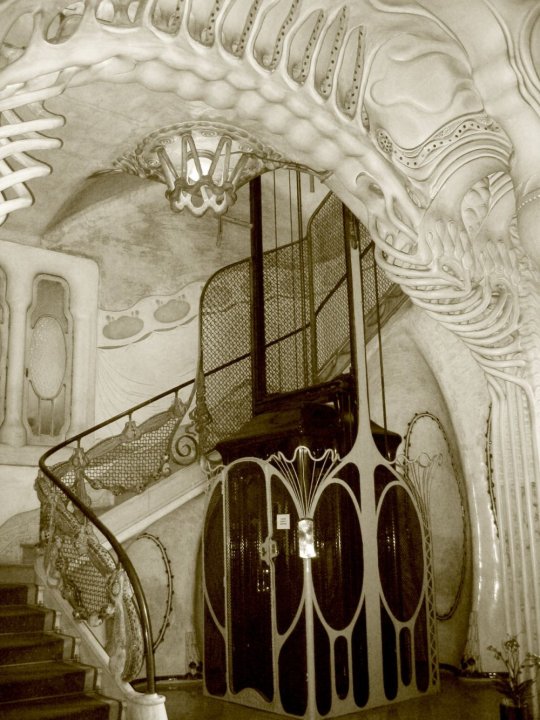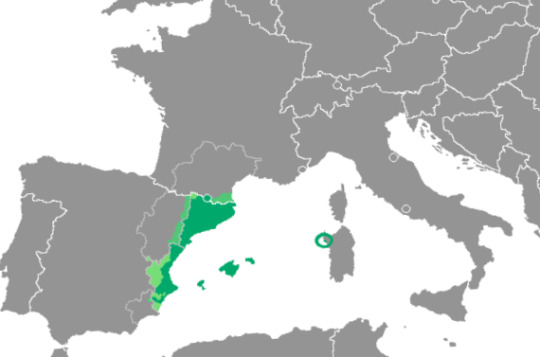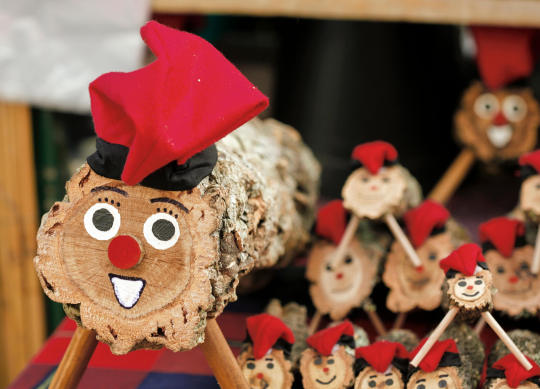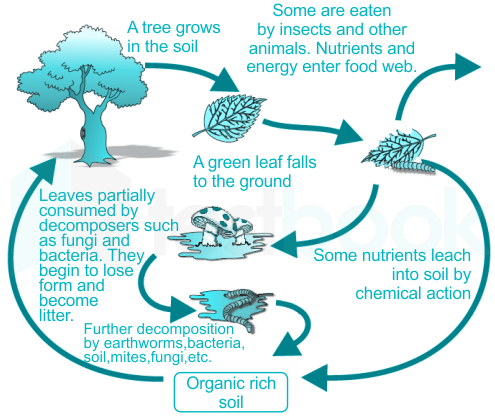#catalan
Explore tagged Tumblr posts
Text
Balearic Islands, Spain
anaquirosa
3K notes
·
View notes
Photo

Manuel Sayrach i Carreras (Catalan, 1886-1937) - Casa Sayrach
19K notes
·
View notes
Text

For comparison, the map of geolocated Wikimedia elements vs map of the Catalan Countries:

Catalan was the 3rd Wikipedia to be created (after English and German) but, even though German Wikipedia website had been created, it didn't have any articles for a while. For this reason, Catalan Wikipedia was the 2nd Wikipedia in the world with articles.
Since its creation in 2001, the Catalan community has been one of the most active Wikipedia communities in the world with the objective of making reliable information in our language freely available to anyone. In 2010, the Catalan Wikipedia became the first version of Wikipedia to rank high quality in all the articles of Wikipedia’s List of Articles All Languages Should Have, reaching this milestone even before English. It has also been awarded many other times for its high quality articles.
Thank you to everyone who contributes!
#wikipedia#catalan#viquipèdia#català#internet#valencià#valencian#wikimedia commons#open source#digital volunteering
3K notes
·
View notes
Text

Wool & lana
The word lana (wool) in languages such as Spanish is etymologically related to English wool. For words to be related, they don't have to look like each other. Instead, you have to be able to trace them back to the same ancestor through regular sound changes - and that's what linguists managed to do with wool and lana. The infographic shows the Germanic and Romance family trees of these words.
#historical linguistics#linguistics#language#etymology#english#latin#french#dutch#german#spanish#proto-indo-european#proto-italic#proto-germanic#gothic#norwegian#swedish#old norse#danish#icelandic#catalan#portuguese#italian#romanian#low saxon#frisian#lingblr
757 notes
·
View notes
Text

Catalan miku
556 notes
·
View notes
Text

that one trend of drawing your fav character as your culture, but Stolas
Realized too late that the sevillana dress is from the wrong part of Spain…
#It’s still something I got exposed to a lot as a kid#art#digital art#fanart#artists on tumblr#helluva boss fandom#helluva boss#helluva boss stolas#helluva boss fanart#sevillana dress#catalan#im pretty sure this started with hatsune miku#hatsune miku
587 notes
·
View notes
Text

Catalan Miku as Castellera <3
421 notes
·
View notes
Text

Architect: Antoni Plàcid Guillem Gaudí i Cornet (Spanish, 1852-1926) Basílica i Temple Expiatori de la Sagrada Família, 1882-2026 La Sagrada Familia, Barcelona, Catalunya
#Antoni Plàcid Guillem Gaudí i Cornet#Antoni Gaudí#art#spanish art#spanish#spain#hispanic#latin#catalan#classical art#classic art#1800s#fine art#european art#europe#european#fine arts#oil painting#europa#mediterranean#the holy family#christian#christian art#christianity#catholic#catholic art#catholicism#western civilization#christmas#christ mass
260 notes
·
View notes
Text
an except of aitana's fantastic speech on preserving the language of catalan and culture of catalunya. she's doing more for recognising and preserving catalan than most politicians👏👏👏
source: @rtvenoticies on twitter
"curiously, i have received more criticism for speaking catalan than for playing football, but i have never been influenced. we have a unique language, land and culture. and since i am here, i would like to ask all the institutions present here to ensure that our language and culture are preserved, which make us so unique, and to use the necessary tools so that our language is not lost, which, as you well know, is constantly under attack and suffers a decline in social use."
186 notes
·
View notes
Text

Hatsune Miku diu visca Catalunya
315 notes
·
View notes
Text
Alexia Putellas talking about her favorite memory about Barça 💙❤️



#fc barcelona#fc barça#fcb#barcelona#visca barca#barca#fcb femeni#fcb femení#barca femeni#barcelona femeni#barça femeni#barca women#barcelona women#barça#woso appreciation#woso community#woso soccer#woso#soccer#football#alexia putellas#blaugrana#culers#visca el barça#visca catalunya#catalan#catalunya#catalonia
136 notes
·
View notes
Text

Miku castellera!! Castells is a catalan tradition of building human towers during particular celebrations. There are some more traditional catalan attires out there, but idk, I think she looks cool as fuck like this.
I’m late to the trend and this is mostly just an elevated sketch, but I wanted to do an international Miku of my own!
#hatsune miku#international miku#miku#miku castellera#miku catalana#catalan#catalunya#castells#my art#digital art#fanart#vocaloid#art#artist on tumblr
219 notes
·
View notes
Note
you mentioned that it was beaten into your grandparents' generation to not speak catalan, but to speak spanish. did people in catalonia often not speak spanish before franco? what was the political situation of the language like before?
also, do catalan people prefer when spanish is called castellano? i know in romance linguistics it's often called that because spain has other languages, but i think catalan people often don't consider themselves spanish if i've understood it correctly
Yes, many people did not speak Spanish before Franco. For example, my grandma was born and raised in Barcelona right before the war (she was born in 1932) and she did not know any Spanish when she was a kid. She told me that one of the things she remembers the most of her childhood is how terrified she was that someone would find that out. She used to go with other kids of the street to sew with a elderly woman while their parents were at work (babysitting in working class neighbourhoods basically) and after Franco won the war this woman (who didn't speak Spanish either) told them in a made-up Spanish (adding an -o at the end of Catalan words and making them "sound Spanish" mixed with the very little Spanish she knew) that now it was very important that they all spoke Spanish when someone could hear because otherwise they could go to jail. So my grandma spent about a year when she did not say a single word on the street or outside of her family and close family friends. When she went to the market, she only pointed at things and nodded yes or no with her head or said the numbers by raising her fingers. She was very scared that she would be jailed with murderers and rapists. Even though I don't think children would be jailed for this (but it's not strange she believed it, because she had relatives who were in jail and were tortured, and the first years of dictatorship there was so much torture, executions and depravity that you ended up believing anything could happen), even if children wouldn't be jailed, they could still have gotten punished. She was still a kid, so at that age you learn quickly, so she could learn Spanish soon enough (or at least enough Spanish to pass well, because to be fair I've heard her speak Spanish now and every so often she still makes noticeable mistakes, even after decades of being married to my grandpa who is Spanish and speaking Spanish at home).
My parents (born in the 1960s), too, have told me that some of their classmates made mistakes and used Catalan words instead of the correct Spanish sentence. At that point, pretty much everyone in urban areas like ours already spoke Spanish well enough, but most people didn't use it often outside of school (unless they were Spanish immigrants or their children), so they made mistakes. And then the teacher beat them. It was the law that the punishment for speaking Catalan (and for many other things) in schools was corporal punishment. My mum was never beaten and was always at the top of the class and well-behaved, but even to this day she is still quite traumatized for what she saw. The only time I have seen her cry very desperately almost like an anxiety attack was when my grandma was talking about their teacher, because she remembers how he used to throw disobeying children to the floor and kick them, even when the kids were crying he'd still continue kicking them.
My parents have still met quite a few elderly people who didn't speak Spanish, only Catalan or Aranese (there was an Aranese man who used to come to my town for commerce, but it's no problem because Aranese and Catalan are mutually understandable, so they could have conversations where he spoke Aranese and the others spoke Catalan and it was fine, they just thought it was kind of funny). But I (and I dare to say almost everyone from my generation, except people who know someone with a strong mental disability and maybe some people from very rural areas) have not met anyone who speaks only Catalan and doesn't speak Spanish (excluding people from the Catalan-speaking areas that aren't under Spanish control, of course; because I have some friends from Northern Catalonia and there the bilingualism is Catalan+French, or even only French at this point for many young people).
You asked what the political situation of the Catalan language was before the fascists' victory in the Civil War. The situation was of course much better than during Francoism, for example we had the right to use Catalan in public, in schools (public schools taught in Catalan and even taught how to write Catalan), there were films dubbed to Catalan, Catalan radio, Catalan books, etc. and the huge amount of people in Catalonia spoke only Catalan in their everyday lives. However, there was still a strong political and social discrimination according to which Catalan was associated with the working classes and Spanish was seen as more classy (this was the case since the 1600s and intensified much more after 1714), but thanks to the Renaixença movement* Catalan had regained prestige to be used in literature and formal settings, even of the upper class, though conservative upper class (specially monarchists and fascists) still preferred Spanish. But we had done a lot of great steps in the right direction, and things were going very well. Better than ever before since Spain's invasion in 1714.
*the Renaixença was an artistic —and most important literary— movement of the 1800s that's basically our version of Romanticism but with a strong component of political and social fight for the rights of Catalan language and people.
I do not have any preference on whether Spanish should be called Spanish (español) or Castillian (castellano). In Spain, it's almost always called Castillian, so when I speak in Spanish I say castellano just because that's what I'm used to. But it's the same. It feels more correct to say Castillian because it's the language of Castilla, like you say "English" because it's the language of England (instead of saying "British"). But Spain is just Castilla and the lands it invaded, so when anyone says Spanish (language, culture, government, whatever) it means the Castillian one, and Spain has worked hard to make it clear that it does not include any of the occupied nations in its concept of country. So I always understand Spanish as referring exclusively to Castillian things (understanding Castilla to include all the Kingdom of Castilla, not only the modern-day administrative regions of Castilla. So, for example, including Andalucía and Extremadura).
I do not consider myself Spanish and I find it offensive when people try to say "Catalan is also Spanish because it's a language from Spain", it feels like saying that Catalan is nothing of itself, only belonging to Spain. It's forgetting that part of Catalonia has never been Spain (Northern Catalonia) and that Catalan is also the language of Andorra (an independent nation) and l'Alguer (a city in Sardinia inhabited by the descendants of Medieval Catalan settlers who moved there centuries before Catalonia was occupied by Spain). Their language is not "a Spanish language" and never has been, and either way I refuse to be reduced to that. Our language goes back centuries (with changes over time, of course, but it hasn't changed as much as English, we can read Late Medieval Catalan just fine), it has developed as independently as any other Romance language, with its own traditions and literature (the 1st vernacular literature in Romance languages btw!), so we are of ourselves, not "of Spain". I don't want our existence to be reduced to a possession of Spain. We should be described in our own terms.
So yeah, in Spanish saying both castellano and español are fine (some Spanish-speaking countries use one more or the other more), and in English I think it's better to just say Spanish, because that's the word that's used in English. But I don't really mind tbh.
I hope that answers your questions :)
156 notes
·
View notes
Text
Something very strange happened, and I think we need to have a talk about the way some people who don't know about Catalan culture misrepresent the Tió (our pre-Christian Christmas present-bringer, a log who poops presents 🪵🎁).

I have a relative who is a teacher in an adult school, she teaches Catalan language (mostly to immigrants). Some days ago, they were doing an activity about Catalan holidays, and two of her students said that Tió should be banned and that it's the worst thing they have ever heard. My relative was very shocked and asked why they could say such a thing (imagine, it's like saying Santa Claus should be banned in the USA). Their reasoning was that they completely misunderstood everything about it. These people are native Spanish speakers and assumed that the Catalan word "tió" (meaning "log" 🪵) means the same as the Spanish word "tío" (meaning "uncle"), even though both words are pronounced differently. They believed that the Tió represents a man and that we tell children to beat people up, so much until they poop themselves, threatening them to give us things. They said it promotes violence to children and that it's disgusting. Nothing further from the truth.
This is not an isolated incident because a few days ago I saw a post on Tumblr repeating this same mistake. I texted the person who posted it saying that it's not called "Poop Uncle" but "Christmas Log" and they said that this was what they were taught by their teacher (this person is from a different continent), and haven't taken down the post. I have also seen comments on Instagram repeating the same and making fun of how gross and violent it is.
The real meaning of Tió
The Log is a way of symbolically passing down our relation with nature. This is how the tradition works:
In early December, we get a log and bring him home. We take care of him: we keep him in a warm place, with a blanket over him, and we feed him things like orange/clementine peels and walnut shells. On Christmas day, all the family comes together. Children get wooden sticks and go get ready in another room, meanwhile adults place presents under the Log's blanket. Children come back and hit the Log while singing a song. There are many local variants of the song but they all come down to asking the Log to poop us good food. When they have finished singing the song, the children remove the blanket and discover the presents that the Log has pooped. Years ago (now this is only done by some farmer families in rural areas, but back in the day this was generalized), the Log was burned in the house's fireplace and its ashes were spread on the fields, believed to act as a magical fertilizer.
Notice what this whole "ritual" has been about: we take care of nature, nature takes care of us, we are part of a whole and there's no real difference between "nature" and "us" because we all give life to each other. After the winter rest, we wake up nature (the Tió) so it will bring fruits and light again.
We take a log from the forest and bring it home. We do this for the Winter Solstice because it's the time of the return of light and the rebirth of nature after the winter sleep, and wood symbolizes the most important things for human life: food, warmth and light. It's difficult for us to imagine nowadays because we are used to electricity, but for our ancestors who only had oil lamps, fire and candles, darkness was almost absolute for many hours in winter, and that's why the Winter Solstice was very important because it meant that light is coming back. We want something from the Log, his fire will allow us to cook, it will give us light, and keep us warm. So we offer him the same: we feed him (notice what we feed it, too: a kind of compost, which is complimentary to human food), we keep him warm, and we love him. Then, we hit him with sticks (mimicking the motion of cutting down a tree) and ask him to give us food, and he does. Then, our ancestors used to burn him for warmth and light, and then take him back to plants spreading his ashes so it will give life to the fields. Which in turn will give us food again, which we will poop and it will fertilize plants again. And it's a cycle that never ends, we're all part of a whole.
We give to the forests, the forests can grow with the remains that all living creatures leave on its ground: leafs, excrements, the remains of parts of our food like nuts and fruit peels. These things give life to the forest. And the forest gives life to us: gives us fruits and wood (=light and warmth). We take these things, and in return we give to forests once again.

Nowadays, the part about warmth and light is often lost to kids, but the part about food is still obvious, even if subconsciously. This is why the Log is not the horrible barbaric tradition that the "haha poop and violence" crowd would make you believe.
And don't get me wrong, it can still be funny! We're the first ones to make jokes about it. And you can, too! But don't spread false ideas: the Spanish word "uncle" appears nowhere near this tradition because it doesn't have anything to do with uncles nor with Spanish-speaking cultures. It's called the Christmas Log (Tió de Nadal, Soca de Nadal, Tronca de Nadal, Tizón de Nadal, etc depending on the area, all meaning "Christmas Log") and it's celebrated by the Catalan people and a part of the Occitan and Pyrenean Aragonese people. The word "poop" (as an imperative verb, as in "please poop for us") appears in the song, but not in the name.
I know that, now that misinformation has gone viral, a post won't stop it. But I hope at least people with a genuine interest can learn some more. By all means, keep laughing! Make all the memes you want! But knowing the whole story will give you understanding. And, please, don't argue in favour of banning our cultural practises, we've had enough of that for centuries.
#tió de nadal#nadal#tradicions#catalunya#catalan culture#catalan#catalonia#coses de la terra#cultures#culture#anthropology#christmas traditions#christmas#folklore#folk culture
1K notes
·
View notes
Text

Nifts & neves
Niece and nephew aren't the original English words for children of your brothers and sisters. The original words were nift and neve, cognates of German Nichte and Neffe. Niece and nephew were borrowed from Old French and gradually supplanted nift and neve, until these became obsolete. The French words have the same Proto-Indo-European ancestors as Nichte and Neffe, so they're cognates, but very distant ones. Click the graphic to learn more.
#historical linguistics#linguistics#language#etymology#english#latin#french#dutch#german#spanish#proto-indo-european#proto-germanic#low saxon#frisian#romansh#ligurian#catalan#portuguese#sardinian#lingblr
184 notes
·
View notes